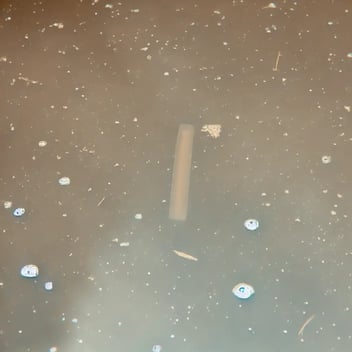5 Latest Innovations in Water Treatment Technology for Industry
The water treatment industry is undergoing a major transformation with the latest technological advancements, which not only improve the quality and efficiency of water treatment but also offer more cost-effective and environmentally friendly solutions. In this article, we will explore five of the most important innovations in this field, each of which brings significant changes in the way we manage water resources. From the development of more advanced filtration technologies to the implementation of renewable energy-based solutions, these innovations are contributing to more sustainable and efficient industrial practices.
Now that we have understood the importance of innovation in the water treatment sector, let us further dive into five key innovations that are currently playing a crucial role in shaping the future of this industry.

IoT-based Water Treatment System
The digital revolution has brought great influence to the water treatment industry through the implementation of the Internet of Things (IoT). IoT-based systems enable real-time and remote monitoring and control of water treatment processes. With this technology, operational efficiency is increased, while the possibility of errors is reduced, providing a smarter and more connected water treatment solution.
Furthermore, IoT integration in water treatment opens up opportunities for continuous optimization. Installed smart sensors can collect data on various parameters such as pH, dissolved oxygen content, and water turbidity levels. This information is not only important for ensuring water quality but also for identifying patterns and trends that can be used for system prediction and improvement. With in-depth data analysis, a treatment facility can dynamically adjust its processes to reduce energy and chemical consumption, while ensuring that the water produced meets high quality standards.
In addition, IoT-based systems enable integration with other data management platforms, facilitating collaboration and data sharing between different water treatment facilities. This not only improves operational efficiency but also promotes transparency and accountability in water resource management. In the long run, the implementation of IoT systems contributes to the development of a water treatment industry that is more sustainable and adaptive to changing needs and environmental challenges.
These advancements mark a new era in the water treatment industry, where technology, data, and connectivity combine to create a more responsive, efficient, and environmentally friendly system. IoT-based water treatment systems are not only changing the way we manage water resources but also setting a new standard for a more sustainable future in the water treatment industry.

Use of Renewable Energy in Water Treatment
The application of renewable energy such as solar or wind in water treatment operations is one of the most impactful innovations. The use of these energy sources not only reduces carbon emissions but also lowers operational costs, which is an important step towards more sustainable and environmentally friendly water treatment practices.
Furthermore, the utilization of renewable energy in water treatment operations is one of the most impactful innovations.
Furthermore, the utilization of renewable energy in water treatment systems helps address one of the industry's major challenges: reliance on expensive and environmentally unfriendly conventional energy sources. For example, by installing solar panels in water treatment facilities, enough energy can be obtained to operate various equipment, such as pumps and filters, efficiently. This not only reduces the consumption of energy from the grid but also minimizes the environmental impact of the operation.
Furthermore, the deployment of wind turbines in strategic locations can harness the power of wind as a clean alternative energy source. This innovation is particularly beneficial in areas that experience high wind speeds, where wind turbines can effectively reduce the energy load of water treatment facilities.
The use of renewable energy is also a key component of renewable energy.
The use of renewable energy also paves the way for further innovation within the sector. For example, research and development is underway to use the energy of water flow in the treatment process itself, which will take energy efficiency to a higher level.
With the integration of renewable energy sources, water treatment facilities can effectively reduce the energy load of water treatment facilities.
By integrating renewable energy sources into water treatment systems, the industry is not only demonstrating its commitment to environmental sustainability but also setting a model for other sectors to reduce their carbon footprint. This is a significant step forward towards a future where water treatment and environmental preservation go hand in hand, supporting our collective efforts for a healthier and more sustainable planet.

Wastewater Treatment Technology for Reuse
Innovations in wastewater treatment now allow wastewater to be reprocessed and reused. This technology is critical in addressing water scarcity, reducing resource wastage, and supporting environmental sustainability. The development of these methods continues to grow, offering effective solutions for industries and communities.
One of the biggest advancements in this field is the use of advanced technologies such as reverse osmosis, ultrafiltration, and advanced biological processes capable of treating wastewater to a quality that is safe for reuse. With these technologies, wastewater that was previously only discharged can now be processed for various purposes, such as irrigation, industry, and even domestic use after going through an adequate treatment process.
In addition, there have been innovations in the field of wastewater treatment.
In addition, there are innovations in the use of more environmentally friendly chemicals and biological processes in wastewater treatment. These more environmentally friendly chemicals reduce the risk of secondary pollution that often occurs in traditional treatment. On the other hand, the utilization of microorganisms in biological processes not only improves the efficiency of wastewater treatment but also supports the regeneration of natural ecosystems.
The development of modular and small-scale wastewater treatment systems is also an important topic, especially for communities or industries located in remote locations. Such systems offer great flexibility and adaptability to local conditions, enabling effective wastewater treatment without the need for large infrastructure or significant investment.
Innovations in wastewater treatment technology are also becoming an important topic, especially for remote communities or industries.
Innovation in wastewater treatment technology is not just about efficiency and sustainability, but also about creating a closed cycle of resources, where used water can be processed and reused. These steps are critical in meeting the challenge of global water scarcity and helping to build a future where every drop of water is utilized to its fullest potential.

Read also:
Sea Water Treatment Into Drinking Water: Steps and Technology
Development of Environmentally Friendly Chemicals for Water Treatment
The development of more environmentally friendly chemicals in water treatment is one of the important innovations in the industry. These materials are designed to be effective in treating water while minimizing negative impacts on the environment. This innovation reflects the industry's commitment to more responsible and sustainable practices.
The use of these new, safer chemicals, which are often derived from natural sources or bio-ingredients, contributes to reducing environmental contamination and maintaining ecosystem health. This is particularly important in water treatment processes, where the reduction in the use of hazardous chemicals can reduce the risk of secondary pollution and aid in maintaining better environmental quality.
Furthermore, the development of safer coagulants and flocculants has improved the efficiency of wastewater treatment. The use of these materials not only improves the quality of treated water, but also allows for the reuse of water in a variety of applications, supporting more sustainable management of water resources.
Overall, these advancements in wastewater treatment can reduce the risk of secondary pollution and help in maintaining better environmental quality.
Overall, these advancements in the use of environmentally friendly chemicals not only improve the water treatment process but also show the industry's strides in adopting greener and more sustainable practices, ensuring the protection of natural resources for a brighter future.

Bioremediation Technology in Sewage Treatment
Bioremediation, a process that uses microorganisms to treat and clean wastewater, has become one of the most effective and environmentally friendly approaches in waste management. This technology utilizes the natural ability of microorganisms to break down organic matter and harmful contaminants, converting them into safer substances.
The application of bioremediation in waste treatment not only improves treatment efficiency but also reduces reliance on hazardous chemicals often used in traditional methods. This is highly beneficial in reducing the environmental impact of the sewage treatment process, especially in terms of reducing greenhouse gas emissions and secondary pollution that can arise from the use of chemicals.
Furthermore, bioremediation in sewage treatment is an effective way to reduce the environmental impact of sewage treatment.
Furthermore, bioremediation is often more cost-effective compared to conventional treatment methods. Reduced chemical use not only reduces operational costs but also reduces chemical waste management costs. In addition, the process can be adapted to a wide range of waste types, making it highly flexible and effective for a variety of industrial applications.
Advances in bioremediation technology also include the development of more efficient and specific strains of microorganisms against certain types of contaminants. Research continues to be conducted to explore new possibilities in this field, including genetic engineering of microorganisms to improve their effectiveness and efficiency in treating waste.
Applying bioremediation technology also includes the development of more efficient and specific strains of microorganisms to specific types of contaminants.
By implementing bioremediation technology, the sewage treatment industry can take a big step towards more sustainable practices, reducing its impact on the environment, and providing a safer and more efficient solution to sewage management.
As a leading distributor of water treatment components, we offer a wide range of equipment and materials that not only keep up with the latest innovation trends but also improve the efficiency and effectiveness of your water treatment system. We are dedicated to helping your industry utilize the latest water treatment technology by providing high-quality components. Contact us today via E-mail or Whatsapp to discuss how our products can meet your needs.

.png?width=50&height=50&name=Logo_Watermart_Perkasa-removebg-preview%20(1).png)



